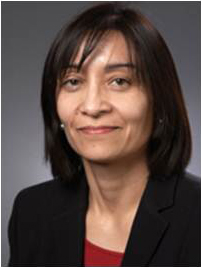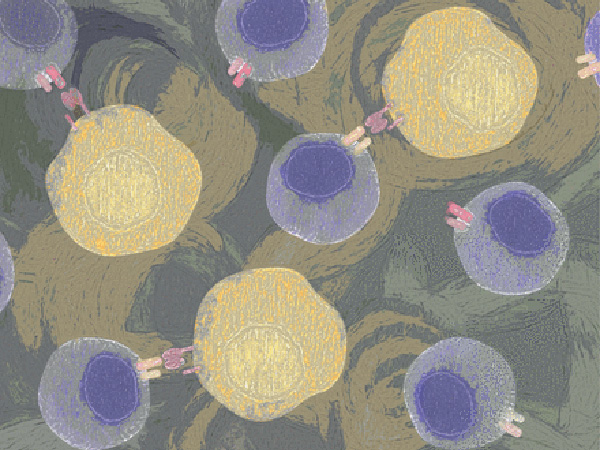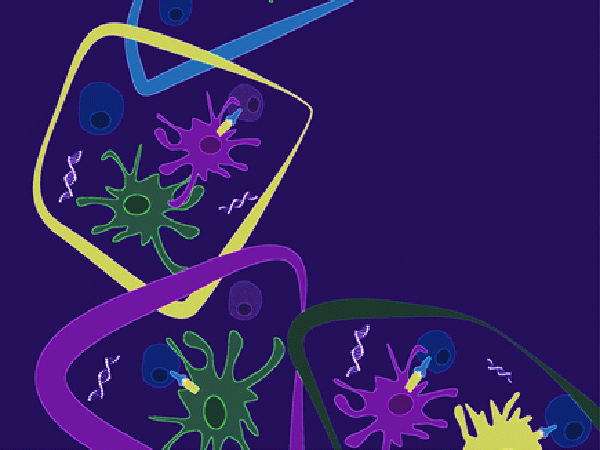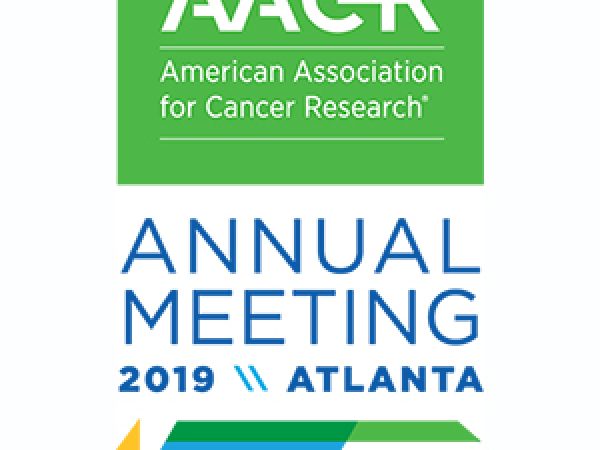Q&A With Nina Bhardwaj, MD, PhD, on Tumor Immunology and Immunotherapy Advancements
Given the excitement surrounding cancer immunotherapy, which is yielding seemingly magical responses for a number of patients with certain forms of cancer, what better place for the AACR to host its 2014 special conference titled “Tumor Immunology and Immunotherapy: A New Chapter” than Disney’s Contemporary Resort in Orlando, Dec. 1-4?
We have been following the progress being made in cancer immunotherapy on this blog, with one post explaining why we hear so much about it and another highlighting the approval of the first in a new class of cancer immunotherapeutics called PD-1 inhibitors. All the clinical advances have come as a result of decades of biomedical research that have provided us with immense scientific insight into the immune system and how it interacts with cancer cells.
The need for more research is, however, evident from the fact that cancer immunotherapies are currently available for only a few types of cancer, and only a small percentage of patients receiving them have dramatic and long-lasting responses.
We were excited to have the opportunity to ask co-chair of the AACR’s Tumor Immunology and Immunotherapy meeting, Nina Bhardwaj, MD, PhD, director of immunotherapy and professor of medicine, hematology, and medical oncology at the Icahn School of Medicine at Mount Sinai in New York, to share her thoughts about some of the most exciting areas of research that will be discussed at the meeting and what to watch for in the future.
The meeting is titled “Tumor Immunology and Immunotherapy: A New Chapter.” What is the significance of “A New Chapter” and how does it reflect the status of the field?
A convergence of discoveries has propelled immunotherapy to the forefront of cancer research and treatment. For so many years, cancer therapy comprised chemotherapy and radiation therapy, and many people thought that the immune system would never be sufficiently well understood to be harnessed to treat cancer. However, we have learned so much about the contribution of the immune system to controlling cancer that we are at the point where using and/or manipulating the immune system is allowing us to cure some cancers.
The idea that this is a “New Chapter” in tumor immunology and immunotherapy comes from the fact that for the first time as immunologists, we have a solid armamentarium of ideas and agents that we can use to treat cancers. How we use this wealth of knowledge and the tremendous resources and technologies for individual patients is, for me, the next exciting and challenging frontier.
On behalf of investigators who may not be able to make it to the meeting, can you tell us about some of the most exciting basic research that will be discussed?
The meeting program is a nice mix of basic science and preclinical and clinical studies. The program committee did a great job of distilling the meeting to the key areas of tumor immunology and immunotherapy, and we have some great speakers and presentations. There will be something for everyone.
In terms of the basic science, there will be a lot of mechanistic studies presented. One exciting area we will learn a lot about is how the local tumor microenvironment becomes immunosuppressive, and what signals in the tumor microenvironment might tell us whether or not a tumor will be locally immunosuppressive. In this regard, Douglas T. Fearon, MD, from the Cancer Research UK Cambridge Institute, will present data on some of the mechanisms that prevent innate immune cells and T cells from infiltrating a tumor, while Thomas W. Dubensky, PhD, chief scientific officer of Aduro BioTech, Inc., will discuss how the STING pathway can be harnessed to overcome immune suppression in the tumor microenvironment.
Other areas worth highlighting are the microbiome and immunometabolism, which is the study of how metabolic pathways modulate the immune system and its response to tumors. We will hear presentations from a number of researchers about how the microbiota in the gut can influence not only local cancers but also the response to distal tumors. For example, changing the microbiota in the gut can change the immune response to a tumor in the skin.
What areas of tumor immunology and immunotherapy research are currently yielding the most exciting progress?
There are a lot of exciting areas of research right now. Four areas that stand out are: T-cell exhaustion and immune checkpoints; the tumor microenvironment and its role in tumor immune suppression; the microbiome-cancer relationship; and the concept of combining different immunotherapy strategies.
We covered some of those earlier, but in terms of T-cell exhaustion and immune checkpoints, E. John Wherry, PhD, associate professor of microbiology at the Perelman School of Medicine at the University of Pennsylvania, will talk about the mechanisms that drive T-cell exhaustion—the term used to describe how T cells lose effector functions when they are chronically activated, which can occur in the tumor microenvironment—in the opening plenary session. Immune checkpoint proteins are central to T-cell exhaustion and he will discuss the key molecules and his lab’s work on refining subsets of exhausted T cells.
Which clinical research innovations being presented at the meeting are you most excited about and think will have an impact in the clinic?
Combining different immunotherapy strategies is one of the most exciting areas of clinical research, and we will hear a lot about this at the meeting. But we will also hear about some novel approaches to immunotherapy, and directly modulating the tumor microenvironment through intratumoral injection will be the focus of a number of talks. For example, Joshua Brody, MD, an assistant professor at the Icahn School of Medicine at Mount Sinai in New York, will present research about intratumoral injection of adjuvants that activate the innate immune system and have resulted in clinical responses in a number of patients. Combining this approach with checkpoint blockade is something I think we will see explored in the future.
Personalized vaccines are another very exciting area that we will hear about at this meeting. Catherine J. Wu, MD, an associate professor of medicine at Dana-Farber Cancer Institute in Boston, will talk about studies in which a patient’s tumor is sequenced to identify tumor antigens unique to the patient. Once these have been identified, peptides that match these antigens are generated and used to vaccinate the patient. This idea is opening up a whole new area of research that seeks to develop vaccines tailored to individual patients.
What are the areas of tumor immunology and immunotherapy to watch?
In addition to combinations of immunotherapies, we are going to see more tailoring of immunotherapies to specific patients. By identifying tumor-specific antigens we can not only think about developing tailored cancer vaccines but also expanding patient T cells reactive to that antigen, as Steven A. Rosenberg, MD, PhD, chief of the surgery branch at the National Cancer Institute, and Carl H. June, MD, the Richard W. Vague Professor in Immunotherapy at the Perelman School of Medicine at the University of Pennsylvania, with respect to chimeric antigen receptors, are doing.
We are also beginning to see researchers investigate ways to target innate immune cells. Most current immunotherapy approaches are T-cell based but a number of new investigational approaches are designed to stimulate the immune system. In addition to Dubensky’s cyclic dinucleotides that stimulate innate immunity via STING, Robert H. Vonderheide, MD, DPhil, the Hanna Wise Professor in Cancer Research at the Perelman School of Medicine at the University of Pennsylvania, will talk about using CD40-specific antibodies to target innate immune cells called macrophages in pancreatic cancer.
What do you believe are the biggest challenges to expanding the clinical use of immunotherapy?
There are many challenges to expanding the clinical use of immunotherapy, from resources, to conducting clinical trials of combinations of therapies, to making it accessible to more people, to teaching the next generation of clinical researchers. In terms of the latter, what excited me this year was that three of the five fellows that entered my institution are focusing on immunotherapy in their futures. But I think the important thing is that despite these hurdles, we have amazingly exciting therapeutics that have shown and will show tremendous promise to transform the lives of patients.
Nina Bhardwaj, MD, is the 2014–2015 chair of the AACR’s Cancer Immunology Working Group, which helped develop the program for Tumor Immunology and Immunotherapy: A New Chapter.
The Inaugural International Cancer Immunotherapy Conference: Translating Science Into Survival, which is being organized by the AACR in conjunction with the Cancer Research Institute, the Association for Cancer Immunotherapy, and the European Academy of Tumor Immunology, will be held Sept. 27–30, 2015, in New York.




